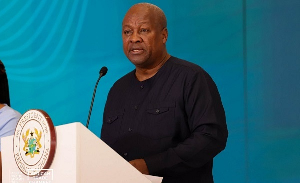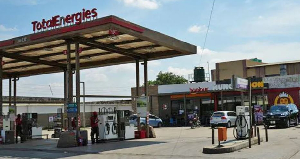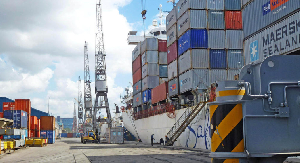Members of the Seventh Day Adventist (SDA) Church have embraced the National Sanitation Day (NSD) campaign to promote clean environment, good health and sanitation in cities and communities to prevent diseases and save lives.
The Leadership of the Church, who mobilised over 700,000 of its worshipers nationwide to desilt choked gutters and clear the streets of filth in all the regions, called on other Christian bodies to join the trail.
“We must move away from curing diseases to preventing them as the answer to Ghana’s health problem,” Pastor Samuel Larmie, President of Southern Union of Conference of SDA told journalists during the clean exercise in Accra on Sunday.
“We can’t sit down and fold our arms and watch people die of filth. Hygiene and health are part and parcel of the church and we value health so much and must be seen to be at the forefront educating our members on good hygiene,” he added.
According to him the biblical scriptures contained many health laws, which enjoined religious leaders not to only focus on spiritual growth and development of their members, but pay attention to the followers' bodily health needs too.
Pastor Larmie called on the Ghanaian society and the churches to join the national sanitation campaign course to rid the cities, towns and communities of unbridled filth that has engulfed the gutters and streets.
He expressed remorse that, unhygienic related disease like cholera continued to kill hundreds of people in the nation and infecting many more.
Dr William Brown, Country Director of Adventist Development Relief Agency, told the Ghana News Agency it was unfortunate politics tend to polarise the nation and called for de-politicisation of sanitation issues.
He said fitness related matters were national in character and ought to be pursued seriously without any political colouration so as to meet the primary health needs of the people.
“When cholera comes, it does not know any party colour, whether you are party A or B you can be infected,” he added.
In order to sustain the exercise, he advocated the infusion of sanitation into the school curricula, particularly at the basic level, to inculcate the culture of good hygiene and sanitation into the younger generation.
Dr Brown also urged government to implement sanitation policies and enforce the laws backing them, to curb poor sanitary conditions largely originating from bad drainage systems and the people’s disregard to healthy living.
To give meaning to the Church’s commitment to guaranteeing good health in the society, he said the church embarked on a national campaign on December 6, to educate members on the Ebola Virus Disease and sanitation.
Mr Julius Debrah, Minister of Local Government and Rural Development, said sanitation remained high on government's agenda and that it was investing heavily in infrastructural projects relating to drainage, water supply and health care facilities across the country.
Government is engaging various public education campaigns aimed at changing people’s behaviour and attitude towards proper sanitation and cleanliness.
Mr Debrah also said the Ministry had rolled out Sanitation Business Modules aimed at building shoring up commercial and household toilets as well as improve water services.
President John Dramani Mahama on the occasion of the maiden National Sanitation Day this year, expressed regret that the nation had witnessed severe incidence of cholera, which resulted in needless deaths.
“The annual cycle of cholera outbreaks is linked to insanitary conditions and unacceptable socio-cultural habits, coupled with an infrastructure deficit,” he said.
The President, who described the deaths as painful and unacceptable, said everybody irrespective of one’s ethnic, political, religious or geographical background had a responsibility to take the needed measures to ensure clean, safe and healthy environment.
Following the declaration of the NSD, prominent persons like the Asantehene, Otumfuo Osei Tutu II, and the Okyehene, Amotia Ofori Panin as well as the military, the Ghana Education Service, and the Ghana Private Road Transport Union pledged their support for the campaign.
Health News of Tuesday, 30 December 2014
Source: GNA













